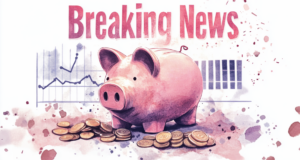JPMorgan: Could RWA Bonds Be the Next Challenge for Stablecoins?

In an interview with The Block, JPMorgan analysts expressed their belief that tokenized bonds backed by real-world assets (RWAs) could pose a significant challenge to stablecoins.
On this page
In an interview with The Block, JPMorgan analysts expressed their belief that tokenized bonds backed by real-world assets (RWAs) could pose a significant challenge to stablecoins.
The bank’s experts argue that real-asset backing gives these bonds a stability advantage over dollar-pegged digital currencies.
Over the past year, the RWA bond market has surged to $2.4 billion. While still trailing stablecoins’ $180 billion valuation, this increase shows the mounting interest in these alternative assets.
Tokenized treasury funds have hit a $2.4 billion market cap. Source: rwa.xyz
In contrast to stablecoins, whose stability depends on their issuer, RWA bonds are anchored in government assets like U.S. Treasury bonds. These bonds provide not only security but also yield, attracting both large institutional investors and everyday market participants.
Additionally, issuers of stablecoins like Tether (USDT) and Circle (USDC) don’t provide yield to their users. Introducing a yield could categorize certain stablecoins as securities.
Stablecoins stand out for their high liquidity, a major benefit. They provide minimal transaction fees, even for large trades, allowing trading to flow without interruptions.
Meanwhile, RWA bonds are less liquid, meaning it takes longer to convert them to cash or similar assets.
The content on The Coinomist is for informational purposes only and should not be interpreted as financial advice. While we strive to provide accurate and up-to-date information, we do not guarantee the accuracy, completeness, or reliability of any content. Neither we accept liability for any errors or omissions in the information provided or for any financial losses incurred as a result of relying on this information. Actions based on this content are at your own risk. Always do your own research and consult a professional. See our Terms, Privacy Policy, and Disclaimers for more details.


























